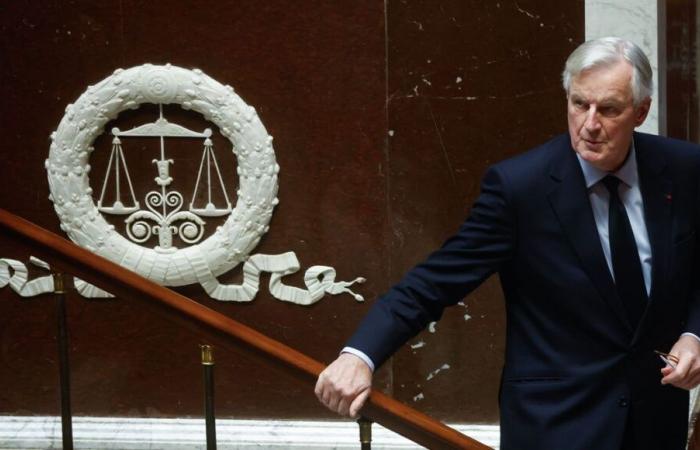Will Michel Barnier's government survive this week? By having had recourse to 49.3 this Monday to have the Social Security financing bill adopted, the Prime Minister and his government are exposed to two motions of censure, put to the vote on Wednesday in the National Assembly. What will happen if the government falls? What happens if Michel Barnier is retained? France Bleu explains the different future scenarios to you.
Two motions of censure on Wednesday
On Wednesday, Prime Minister Michel Barnier will face two motions of censure, debated and submitted to a vote by deputies of the National Assembly. The one submitted by the New Popular Front will be examined first, because the left submitted it first. The one submitted by the RN will then be examined. The two texts were submitted after recourse to article 49.3 of the Constitution to have the 2025 Social Security budget adopted, which engages the responsibility of his government. The National Rally has announced that it will vote on the motion tabled by the left. If all the deputies of these two groups vote for censure, the threshold of 289 deputies which constitutes an absolute majority in the Assembly will be reached, and then the government will fall.
What happens if the government falls?
If the government of Michel Barnier were to fall, the Prime Minister will then resign, and his government confined to current affairs, until his successor is appointed by Emmanuel Macron. This scenario only happened once under the Fifth Republic, in 1962 under Georges Pompidou. But at the time, General de Gaulle, President of the Republic, was able to decide to dissolve the National Assembly immediately. In 2024, Emmanuel Macron will be limited in his choices to form a government since he cannot dissolve the Assembly and call new legislative elections before July 2025.
He will therefore have to appoint someone at Matignon with the same balance of power within the hemicycle, that is to say without a majority group and divided into three groups: left, center-right and extreme right. The future government will therefore in turn be strongly exposed to a motion of censure.
What future for the 2025 budget?
If Michel Barnier's government falls on Wednesday, the Social Security finance bill will therefore be rejected. If a new government is formed in December, it will then have the possibility of presenting a new text for the 2025 budget. Parliament will have 70 days to examine it and the text will follow the classic legislative route.
On the other hand, if no government is appointed before the end of 2024, then the resigning government will be able to table a special bill, to renew the 2024 budget in 2025, while waiting for a new budget to be voted on. This provision allows the continuity of State expenditure and revenue from January 1, 2025.
But if this special bill were to be rejected, then France would experience an unprecedented period and risk “shutdown”, named after this budgetary impasse which regularly makes headlines in the United States. The situation would be blocked and the State would find itself without a budget. Emmanuel Macron could then use the exceptional powers conferred by article 16 of the Constitution, which would allow him to make budgetary decisions without going through Parliament. An extreme solution, which would consist of putting a pause on the democratic functioning of France.
A budget applied by ordinance?
Last hypothesis, if the debates around the budget extend beyond the 70 days provided for by the Constitution, the finance bill can then be implemented by ordinance, without a vote of Parliament, as provided for in article 47 of the Basic Law. This year, the end of the constitutional deadline will occur on December 21 at midnight. In theory, this system would allow the country to continue to function, but there remains legislative vagueness around this text, never used until now. Many elected officials will be tempted to consider this system as a circumvention of Parliament. This would also not exclude the possibility of a motion of censure that could be tabled spontaneously.
What happens if the government continues?
This hypothesis seems complicated, but is not impossible. Michel Barnier can still succeed in convincing the National Rally, but he only has 48 hours to do so. In this case, the government maintains itself and the Social Security budget for 2025 is adopted. But the complications are not over yet, since the government must also pass the finance bill (the state budget) and the end-of-management finance bill (budget adjustment 202, to end the current year). Two texts on which it will be complicated for Michel Barnier to find compromises in the Assembly, and therefore risk having to resort to 49.3 and expose himself to new motions of censure.






